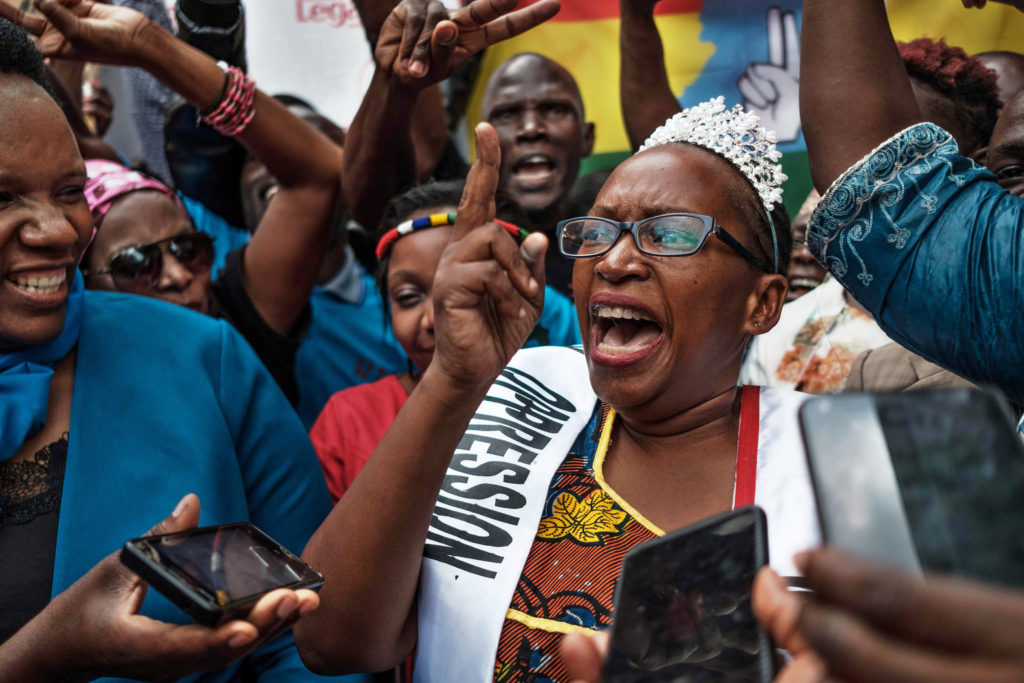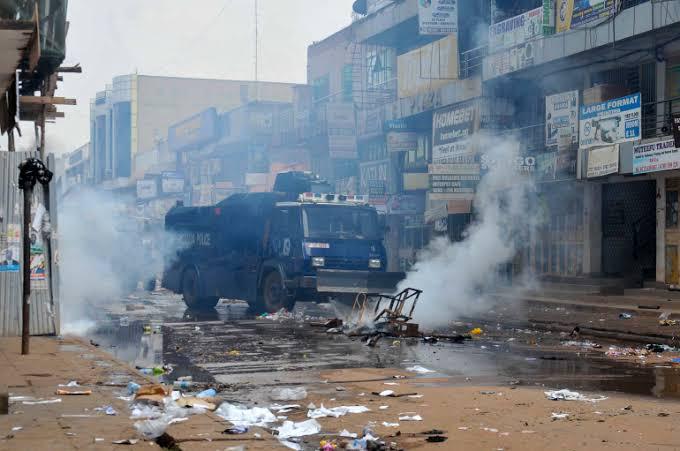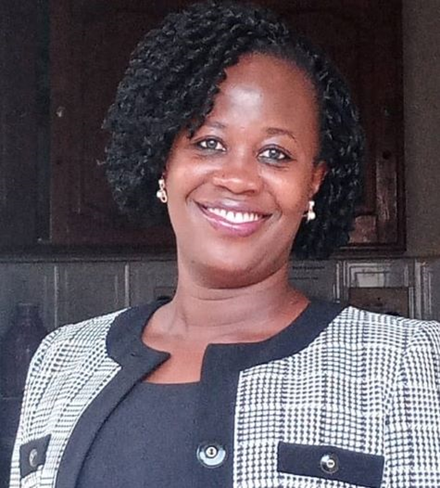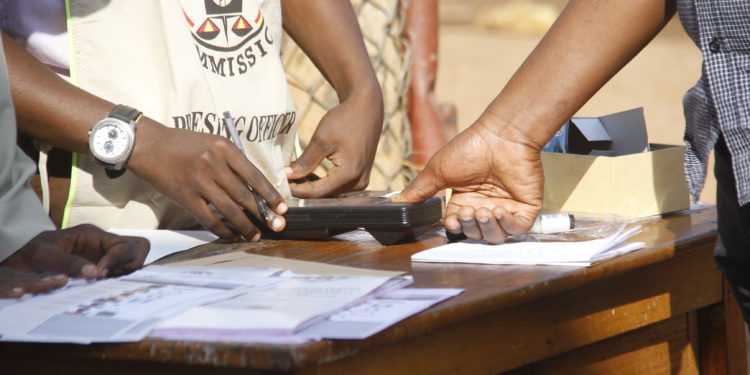With Ugandans warming up to elect their next leaders, the political atmosphere in the East African country has been charged and toxic. So tense has the 2020-2021 election campaign season been that four-time presidential candidate Kizza Besigye, described the levels of violence as “unprecedented”. Experts worry that the trend of violent politics threatens the gains made in bringing women on board as active players in the political arena. Racheal Arinaitwe Mwine picked the mind of Elizabeth Ampairwe, Program Manager- Women and Leadership at the Forum for Women in Democracy (FOWODE) on this and other issues.
The Forum for Women in Democracy (FOWODE) has been at the forefront of promoting gender equality and women’s leadership for over 25 years. What strides have you made as an organization regarding this issue?
FOWODE’s mission is to promote gender equality in all areas of decision making through capacity development, community empowerment, policy engagement and strategic partnerships. We provide thought leadership on gender responsive budgeting and advocate for inclusive and just governance to give women voice, choice and power.
FOWODE prides herself in having her foundation in the passing of the 1995 Uganda Constitution, hailed as one of the most gender sensitive in the world, thanks to the foresight of the founders. We are part of a history that paved the way for women to have a voice in the public space. Over the past 25 years, we have trained over 21,000 women to navigate the political landscape and to elevate the impact of their leadership. This contributed to a corollary increase in legislation that reflects women’s and girls’ priorities and promoted advocacy efforts for women to step into roles of strategic influence, such as the Speaker of parliament. Through our work we promote authentic civic engagement, champion women’s political consciousness and nurture alternative and transformative leadership to shape a future that advances social justice.
Having recognized the importance of sisterhood, building and strengthening the women’s movement, we are a key player in galvanizing collective power that drives national action on women’s empowerment and gender equality. We continue to support women’s caucusing in parliament and local government councils to advance a collective agenda and we have been popularizing the Women’s Manifesto ahead of the 2021 general elections using these very structures.
A major success was to pioneer a body of knowledge on gender-responsive budgeting in Uganda which culminated into the Public Finance Management Act of 2015, since it provides for the first gender and equity certification process in the world. In our activities we challenge unequal power structures and work with men to change negative attitudes, norms and practices. FOWODE engages public institutions to raise awareness and to influence decision-making and priority setting for gender-transformative change. Additionally, the organization leverages strategic partnerships to promote gender equality and uphold women’s rights in Uganda.
In your line of work and interaction with women, what factors have influenced women’s participation in politics?
The primary factor is the enabling policy environment, for example the 1995 Uganda Constitution, which reaffirms equality and women’s leadership in Article 33 (4) where it states that, “Women shall have the right to equal treatment with men and that right shall include equal opportunities in political, economic and social activities.” Article 32 provides for affirmative action, which brought on board positions of the women members of parliament and asserted women’s right to participate in leadership through these constitutional provisions. Besides, the affirmative action positions are a preserve for women as men cannot contest for these positions.

Strong support networks and association with women’s organizations promote participation in politics as well as support by key opinion leaders (godfathers/mothers), the family and spouse. Additionally, the possession of financial resources is a prerequisite, among other features. Numerous women rights’ organizations such as FOWODE, Uganda Women’s Network (UWONET), ACFODE and Women’s Democracy Network (WDN) continue to strengthen women’s voices and boost their confidence as leaders through trainings, meetings, and mentorship sessions. The focus is placed on equipping them with knowledge and skills to become more effective legislators, including critically engaging with the media to increase their visibility. As a result, women who often shied away from leadership previously, now feel confident to vie for political leadership. It is therefore not surprising that preliminary reports indicate that a total of 134 women are contesting for direct seats in the 2021 general elections, which is a significant increase from 84 in 2016.
The women’s movement has also played a critical role in nurturing an environment that embraces women’s participation in democratic processes by proactively engaging with men and boys to challenge negative stereotypes. Working with the media as well aims to reshape the narrative on women’s leadership.
Elections are around the corner and while we have women vying for political office, the environment is still charged with violence against women. How is violence against women being manifested in the political space?
Violence against women in the political space happens in the public sphere, especially for women as candidates, and in the private sphere for women who want to vote or be politically engaged. Electoral violence can also emerge out of post-conflict scenarios, simmering socio-economic, ethnic or religious differences, long-standing rivalries of elaborate patronage networks, or in otherwise stable political situations, the wrong mix of circumstances and opportunity. It is exhibited in various forms, such as societal, familial and economic. Political threats include harassment and intimidation, emotional, physical, and sexual abuse.
Psychological violence is the most dominant in the political sphere, adversely affecting women physically, emotionally and socially. It is an “informal means of control [and] includes systematic ridicule, ostracism, shame, sarcasm, criticism, disapproval, exclusion and discrimination” which leads to mental pressure/stress on the person being violated.
Physical Violence through direct physical harm to an individual or against a group has marred this campaign period through arbitrary arrests of candidates and their supporters, murders, kidnapping, beatings, stoning, starving and domestic abuse, all of which have negatively impacted women’s participation in leadership.

Some political aspirants have reported cases of sexual violence by their political “godfathers” and campaign agents who coarse them into unwanted sex in exchange for their support. Because of shame associated with sexual violence and the fact that some of the female aspirants are married women, they opt not to pursue justice when such occurs.
The election period has been tense this time round. How is this likely to affect women participation in leadership and does FOWODE have any plans to pick up the pieces?
With the increased violence many women have kept away from political activities. Out of fear they prefer to stay at home and observe politics from the safety of their homes. This is likely to affect the voter turnout of women, thus denying them their constitutional right to vote.
Campaigns have also been highly monetized as evidenced by the widespread voter-buying and buying of political support. Elective politics has increasingly become a reserve for the wealthy, which reduces women’s capacity to effectively participate in elective politics. This has been worsened by political patronage where power brokers in communities are said to use their influence to subject women to sexual violence.
The media has often times portrayed women aspirants negatively and trivialized their ability to be good leaders. While it is unquestionable that the media plays a major role in framing public perceptions and attitudes about roles for males and females, in Uganda it is often used to the disadvantage of women. The predominately male owned and male-dominated media often propagates negative images that perpetuate inequality and subordination of women.
We also note that multiparty politics are not working for women because they are associated with considerable violence with women pitted against each other to compete for affirmative action seats. Uganda’s electoral system does not expressly require political parties to ensure gender parity on open seats nor do the parties in turn strongly promote women’s participation on open seats. This raises critical questions about the commitment for internal democracy and gender responsiveness within political party structures.
High levels of civic ignorance about the law at community level hinders women from standing for electoral office, especially when they would like to stand on direct (open seats). There is a general belief that women can only stand for the affirmative action (women-only) seats and the direct seats are a preserve of men. This has been exacerbated by limited civic education ahead of the 2021 general elections due to the COVID 19 pandemic.
In the aftermath of the 2021 general elections, FOWODE intends to document the performance of women aspirants at all levels, taking note of the justification for their performance in order to hold Government accountable to its global, regional and national commitments to women and girls. We will continue building women’s leadership to ensure their substantive and meaningful participation in political processes. Additionally, we will target all the newly elected women parliamentarians and councilors with capacity building programs to build their confidence and to equip them with knowledge and skills to become more effective legislators. This includes critical engagements with the media to increase their visibility. We will also continue working proactively with men and boys to nurture an environment that facilitates women’s and girls’ participation in democratic processes and institutions as well as in household decision-making.
Has there been any progress in raising awareness since the last election?
Yes, FOWODE and other women rights’ organizations have been conducting mass sensitization of citizens on the importance of women’s leadership through trainings, community meetings and media campaigns.
In Uganda, only a small number of women get elected for direct seats (non-affirmative). Would you say affirmative action hasn’t been effective in changing mindsets?
Institutionalized measures in form of affirmative action have tremendously increased the numbers of women leaders, both in local governments and in the national legislature to 34% in 2016. It has however created widespread misconception that direct seats are a preserve of men just like affirmative action seats are for women. FOWODE and the general women’s movement continues to work tirelessly to demystify this and reshape civic appreciation of affirmative action. We could say this is yielding some results because the number of women contesting on direct seats in the 2021 general elections has increased by 30 from 84 in 2016.

What must be done to reduce and prevent violence against women in elections?
FOWODE undertook a study that documented Violence Against Women in the 2016 general elections which highlights some recommendations that could be undertaken to reduce and prevent it.
Breaking the Silence: Develop programmes of support for women that specifically address VAW-E. The fact that VAW-E is hardly discussed even within the women’s movement or during the trainings that prepare women to get into elective politics itself, is problematic.
Male-Engagement Programmes: Establish specific VAW-E male engagement programmes that target men in political spaces (godfathers, opinion leaders, male voters, electoral officials) and at community levels (spouses of women in politics, families and boda boda riders).
Engagement with Political Parties: Engage the major political parties on addressing violence through: strengthened support to women’s wings; undertake personal mastery training for women in political parties; lobby parties to set up codes of conduct that specifically acknowledge and commit to addressing VAW-E and; set up non-matronizing mentorship programmes within political parties between the younger and older women.
Legal Reform: Integrate UNSCR 1325 in electoral processes so as to address impunity of SGBV perpetrators; enactment of laws to regulate electoral financing as the current electoral laws especially The Political Parties and Organisations Act do not adequately address electoral financing or prohibit commercialization of politics; and ensure that existing electoral legislation addresses VAW-E and GBV in elections.
Electoral System Reform: Work towards adoption of a more inclusive Proportional Representation (PR) electoral system to replace the draining “winner takes all” system. PR not only has the potential to offer minority political parties and independent candidates a better chance of winning seats in Parliament and Councils in addition to ensuring gender parity in electoral processes by requiring political parties to ensure that women are included in their party lists.
National VAW-E Symposium: Convene regular VAWE Symposia to open wider discussion on the matter, popularize strategies and raise awareness on the magnitude and impact of VAW-E. Such a symposium would also provide some space for women candidates, voters and electoral officials to find closure and healing.
Taking the Bull by the Horns: Women, who have suffered from harassment and violation by male counterparts/ godfathers in the 2016 elections, feel that the best way to cope is by addressing the patriarchal notions of power and by challenging the male counterparts for open constituency seats. In their purview, they feel that women’s continued struggle for the affirmative action seats and not challenging men for the open seat only reproduces the same system of oppression, excludes women and increases violence between and among women as a social group.
Elizabeth Ampairwe
Program Manager- Women and Leadership
Forum for Women in Democracy (FOWODE)



